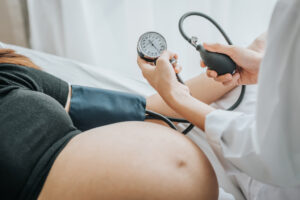Before you conceive consider the following recommendations:
- Take high dose folic acid 5mg for at least 3 months prior to pregnancy and during the first trimester of pregnancy.
- Discuss the medications you are taking with your general practitioner or rheumatologist*
During pregnancy:
- You will be cared for by an obstetrician, your general practitioner and a rheumatologist during pregnancy.
- Rheumatoid arthritis usually improves during pregnancy, especially if your disease is mild at the time of conception.
- At your first hospital visit you will have blood tests performed, blood pressure measurement and urinalysis, and ultrasound scan.
- Tiredness is common during pregnancy.
- Consider taking a multivitamin, such as pregnacare and iron supplementation, such as galfer from 16 weeks of pregnancy.
- An anomaly scan is performed for all women at 20-22 weeks.
- A test is usually performed at 28 weeks of pregnancy to check for diabetes in pregnancy, especially if you are taking steroids.
- Most women with rheumatoid arthritis will have a vaginal delivery. Rheumatoid arthritis is not an indication for caesarean delivery.
Medications that are used in pregnancy and breastfeeding:
- Paracetamol
- Prednisolone
- Sulfsalazine
- Plaquenil (hydrochloroquine)
- Azathioprine
- Mercaptopurine
- Infliximab
Medications to AVOID in pregnancy and breastfeeding:
- Methotrexate or Cyclophosphamide






